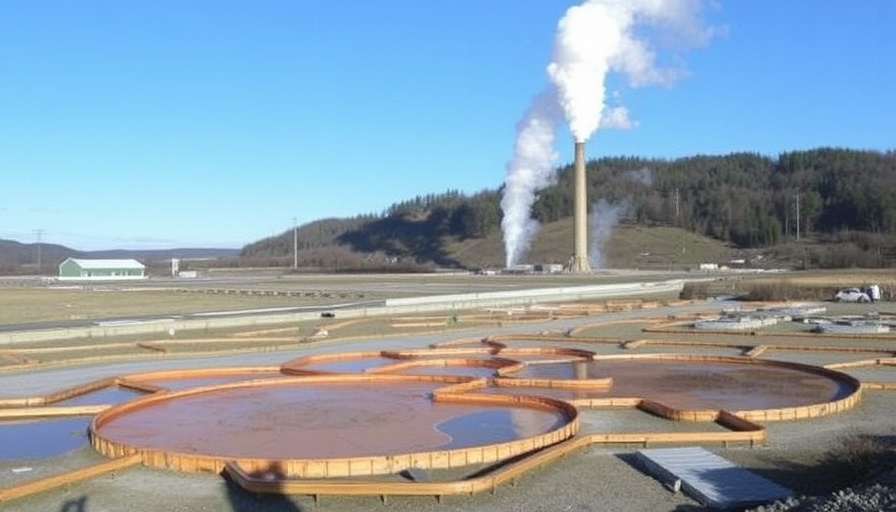
Unpacking the Geothermal Energy Momentum in the Northeast
As states in the Northeast U.S. scramble to enhance their renewable energy portfolios, geothermal energy is steadily gaining traction as a viable alternative. Unlike solar or wind, geothermal offers consistent energy output, leveraging the Earth’s stable temperatures for heating and cooling. This stability has details promising for clients of commercial construction firms eager to incorporate sustainable methodologies into their projects without the unpredictability of weather-dependent energy sources.
What’s Sparking Interest in Geothermal?
The surge in geothermal energy projects can be attributed to a blend of technological advances and policies aimed at mitigating climate change effects. States like Massachusetts and New York are establishing incentives that boost the feasibility of such endeavors. By recognizing its potential for reducing carbon footprints and achieving energy independence, decision-makers are not only supporting environmental trends but also enhancing economic opportunities within their jurisdictions.
Comparing Energy Sources and Their Feasibility
While renewables such as wind and solar dominate discussions, geothermal energy stands apart due to its lower long-term operational costs. According to the U.S. Department of Energy, geothermal facilities often exhibit a higher capacity factor compared to their solar and wind counterparts, meaning they produce power more consistently. For construction clients, this translates into long-term savings and enhanced reliability, critical for commercial projects requiring stable energy solutions.
Challenges Ahead: Addressing Costs and Infrastructure
Even with promising prospects, the transition to geothermal energy isn’t without obstacles. High initial capital investment is a significant barrier that deters some stakeholders, particularly in the face of tight budgets common in the construction sector. To tackle these challenges, collaborative efforts among state governments, energy companies, and construction firms are essential. They need to work together to develop infrastructure that can support geothermal projects, from drilling to distribution.
Actionable Insights for Construction Companies
For construction clients, staying informed about geothermal initiatives could yield substantial benefits. By integrating geothermal heating and cooling systems into new builds or retrofitting existing structures, firms not only cater to eco-conscious consumers but also significantly reduce operational costs over time. Engaging in workshops or webinars on geothermal options can also provide a competitive edge as the market gradually shifts towards more sustainable practices.
Conclusion: Why Geothermal Energy Could Be Your Next Best Friend
As the Northeast paves the way for geothermal energy adoption, commercial construction companies have a unique opportunity to get ahead of the curve. Understanding the intricacies of geothermal can enhance project efficiency and improve cost management, benefiting both the builders and their clientele. With the right investments and partnerships, geothermal energy might not just be an alternative; it could soon become the gold standard for sustainable construction efforts.
 Add Row
Add Row  Add
Add 




 Add Row
Add Row  Add
Add 

Write A Comment